Clark: “I wanted to write an album that reflects how club music isn’t really working for me anymore”
The production process behind Chris Clark’s soundtrack work has increasingly filtered into his solo productions. Here, he discusses the making of his ambitious new album, Playground in a Lake
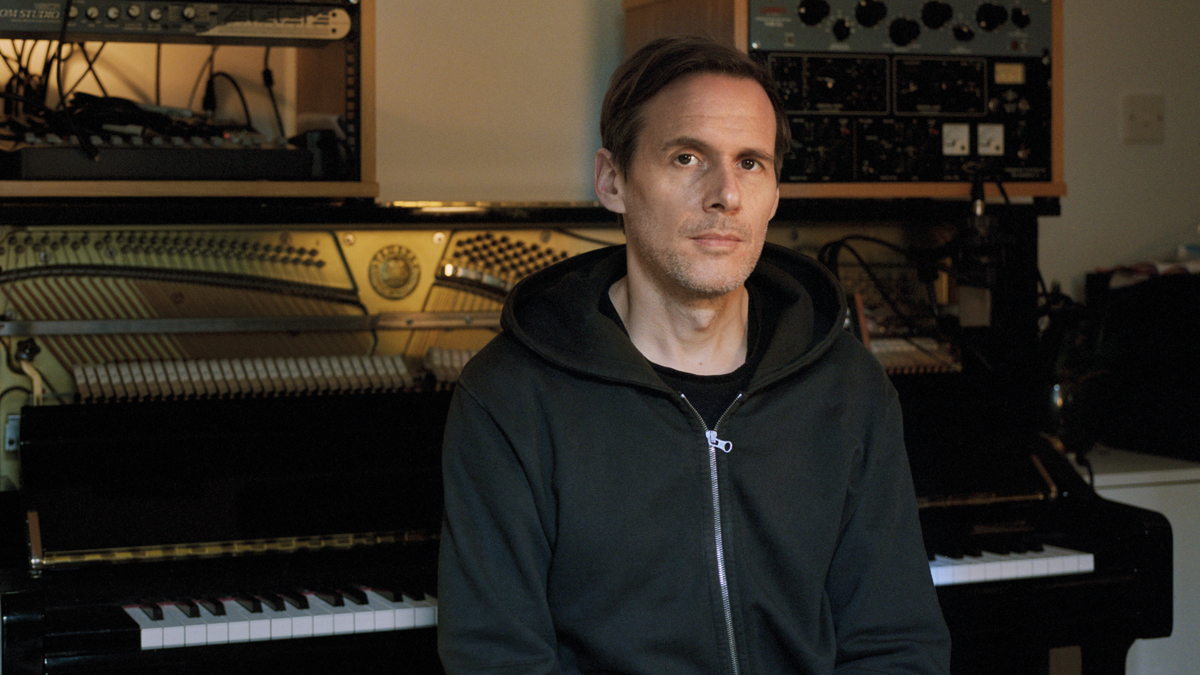
Want all the hottest music and gear news, reviews, deals, features and more, direct to your inbox? Sign up here.
You are now subscribed
Your newsletter sign-up was successful
For the first 15 years or so of his career, electronic purist Chris Clark enveloped himself in tech, driving the experimental needle on IDM releases like Clarence Park (2001), Body Riddle (2006) and the pounding techno album Turning Dragon (2008). Yet Clark has become increasingly drawn to the world of scoring, most recently the TV mini-series The Last Panthers and psychological horror flick Daniel Isn’t Real.
Having widened his parameters, new working processes have bled into solo albums such as Kiri Variations (2019) and his latest long player, Playground in a Lake. Perhaps Clark’s most ambitious record to date, esoteric concepts on the topic of climate change perforate its narrative. Recorded with string ensembles in Budapest and Berlin, ideas initiated acoustically were manipulated electronically, tearing up the framework of what he did with past compositions...
You’ve been increasingly getting into the world of soundtracking over the past few years. Was that something you’d been actively pursuing?
“I pursued it alongside studio albums because you get options to record with more musicians when you score and I found that was a nice thing to have running alongside the solo work. The frustrations of each respective craft inform the other, so I tend to find that after I’ve scored something I want to write a solo record because I can do what I like.”
Do you find scoring restrictive in that sense?
“It’s not that you can’t do what you want with soundtracks, but just that you get good at picking battles and there are lots of tricks to smuggle your vision in without them quite realising it. Some would call it compromise, but the stakes are higher when you’re serving a project that’s way bigger than a solo album. It’s like learning a new language and it’s been a bit like that with me because I’ve been forced to sight read.”
How are you tested by soundtrack work?
Want all the hottest music and gear news, reviews, deals, features and more, direct to your inbox? Sign up here.
“There’s no test like having to come up with stuff really quickly. You have to be able to summon up emotions to convey a certain scene and deliver it in days, but I also love the slow, percolating process of making a studio album where you get to deliberate and be methodical. That’s something I didn’t appreciate until I started scoring.
“If you just do solo albums, after a certain age you get in a bit of a rut. I remember thinking around the time of Iradelphic, is this it now? It’s such a privilege to write a solo record, yet you start repeating yourself and you need something to shake yourself out of that.”
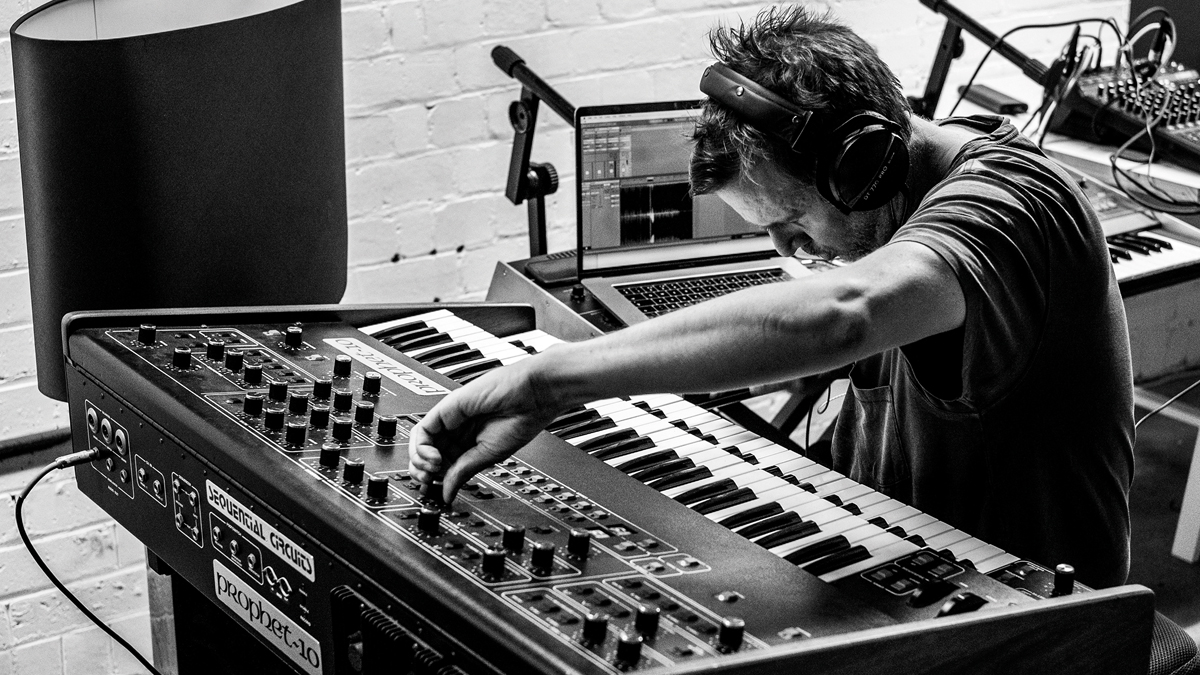
What differences were there between working on the TV show The Last Panthers and horror flick Daniel Isn’t Real?
“It depends on the script and the direction. The Last Panthers had a music editor that really went to town on what I did so I wasn’t scoring that much. With Daniel Isn’t Real I scored the whole thing and it was the first time I’d worked with an orchestra in Budapest. It was a bit rushed and a lot of the music I made for that didn’t get used, so a lot of what you hear on the soundtrack isn’t even in the film. That’s put me in a weird position where my soundtracks are like studio albums because I put everything on there that I wanted to use for the film but wasn’t able to get in.”
We thought the film studio made the decision about what goes on a soundtrack…
“Touch wood I’ve been given the choice so far. It was the same with The Last Panthers, which is weird because the soundtracks still fit the vibe of the show. I’m not just smuggling drum and bass tracks on it; I want them to be really satisfying listening experiences on their own.”
Do you find that those albums are still perceived as soundtracks?
“I was constantly telling people, no, no, it’s not a score album with loads of cues, I’ve put as much work into this as I would a studio record, but of course that falls on deaf ears. It’s a hard battle. I get sick of saying it’s a score but it’s still me because the Daniel Isn’t Real album is actually really personal.”
How do you perceive your own score once you’ve watched it on its intended format?
“I avoid that to be honest. I attend the final mix, but once I’ve finished the work I want to get as far away from it as possible. I always pay attention to how my music merges with the sound design, because what you don’t want is for the score to feel separate from all of the atmos and the foley. On trailers they just overdub loads of sample library sounds over the score and I find that unbearable. It’s like you’ve spent ages cooking a dish using your own recipe and someone comes along and pours ketchup all over it. For me, scores are not just the notes on the page but how you integrate atmospheres into the dialogue.”
Because there’s less time for experimentation, is that field typically more software-based?
“I don’t really use software libraries for anything finished and I know quite a few violinists and cellists, so if I want a part I’ll just write some MIDI and give it to them. The worst thing is when there’s too much music in something and it sounds rushed. I’d much prefer for it to sound really considered, so I’m always trying to focus on quality over quantity and I guess that involves recording within a timeframe where people can get familiar with the themes I’ve written.”
If an electronic purist starts slagging off classical music I feel really compelled to defend it.
Elements of your soundtrack work crept into your 2019 album Kiri Variations but seem much more prevalent on the new album Playground in a Lake?
“The idea of Playground in a Lake was conceived around the time of my eponymous Clark album in 2014. A few of the tracks are actually from around that time, but I don’t do any of that stuff consciously. For years I just wanted to write a record that didn’t have any electronic drums on it and create this molten, liquid album that didn’t need to be played in a club.
“It has a very strong narrative and arc. In my head it’s a soundtrack to a film that doesn’t exist, but we’re not really living in an era of albums, which is a bit of a shame.”
Conceptually, it seems to dovetail between being apocalyptic and post-apocalyptic. It’s dark and savage in places but has very peaceful, ambient moments, too.
“Yeah, there’s kind of hope, but it feels like hard-won hope - an optimism that’s not dialled in but quite heartfelt, and that creeps in at unexpected moments.
“But yes, it does have a black heart. I had the bulk of it down before lockdown and then I completely devoted myself to it for the next six months. I was filled with a certainty that I’d nailed it and can’t listen to it now because I feel too close to it, but I’m fairly sure it’s quite an affecting body of work.”
We read that global warming was a theme?
“That’s in there and it’s weird as I was working with a choirboy and felt I could say things through him that, coming from an adult, might seem a bit on the nose but not when you’ve got a vulnerable kid singing it. I’d never sing the lyrics he sings, even though I wrote all of them, so it felt like I was exorcising something through a child’s voice. I felt like his voice is one of a betrayed child.”
Was that part of your motivation?
“I certainly feel that adults these days need to be good ancestors to kids. Things have got to a point where the optimism of the ’90s isn’t here anymore. We’re in a pretty weird, bleak time and I wanted to write an album that reflects how club music isn’t really working for me anymore.”
The cover art depicts a boy about to go down a slide into an ocean…
“It’s pretty bleak isn’t it [laughs]? You don’t want to get too Bob Geldof with this shit so it’s not completely allegorical - it could be the last kid on earth or it could be an adventure park.
“I’m a bit of a bookworm but it’s hard to say there’s a direct connection between what I read and the music I make. I find a certain outlook bracing, I guess… a cosmic pessimism, but I feel there’s a difference between cynicism and communicating realism about life. The way I express myself is through sound primarily, but I find the way some artists make bleak realities seem beautiful or aesthetically pleasing is really consoling. There’s more humanity and empathy in writers that can talk about dark realities and make them beautiful or poignant and I guess that’s what I’m trying to do, but there are light-hearted moments on the record for sure.”
In the past you seemed motivated by tech and breaking new ground, whereas Playground in a Lake is more focused on emotionally-led storytelling. Do you feel you’ve developed beyond the need for experimentation?
“I would broadly agree with that, but technology also saved the day on a few tracks. Emissary was 80% finished but I loosened up a bit and built a section with all these weird hard disk edits and field recordings. It was a classical piece but I broke the fabric of it.
“For example, I usually hate sampled piano, but I used it intentionally because I liked the way it gave the track a synthetic vibe. There’s technology all over the record, but I guess I picked my battles more sparingly. The track Earth Systems is quite techy - it reaches a point of loudness that you can only get with modern limiting techniques, but it’s not like the album Turning Dragon where I just wanted to explode everything. I couldn’t have written it without digital technology.”
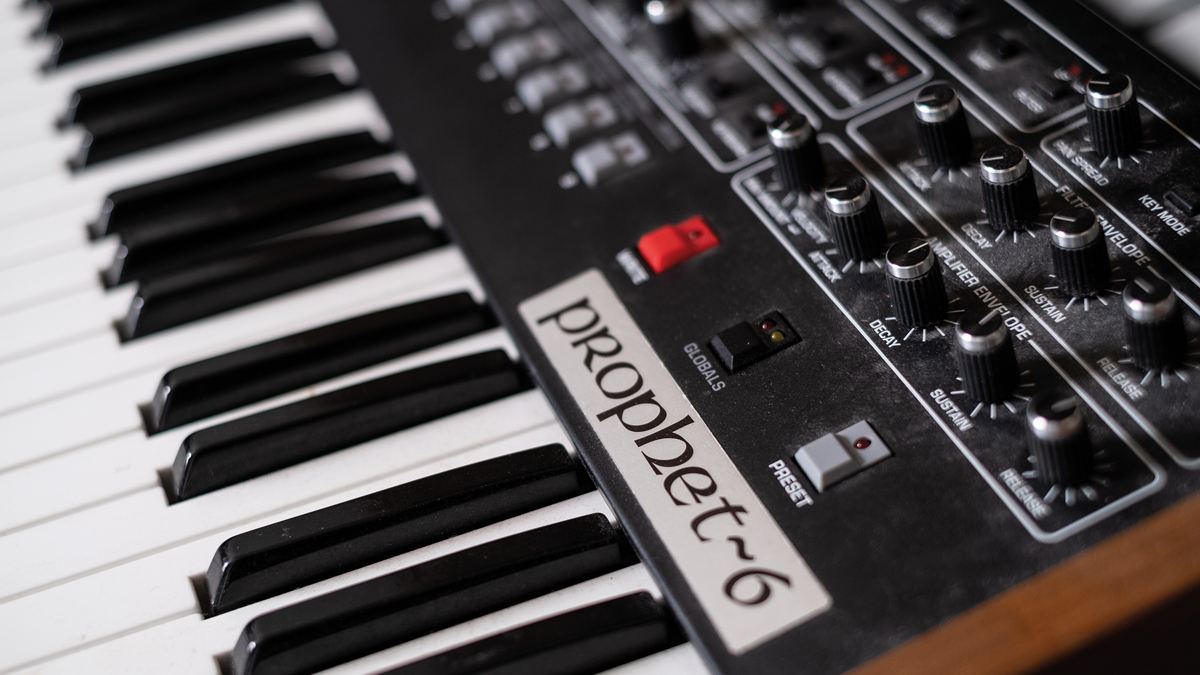
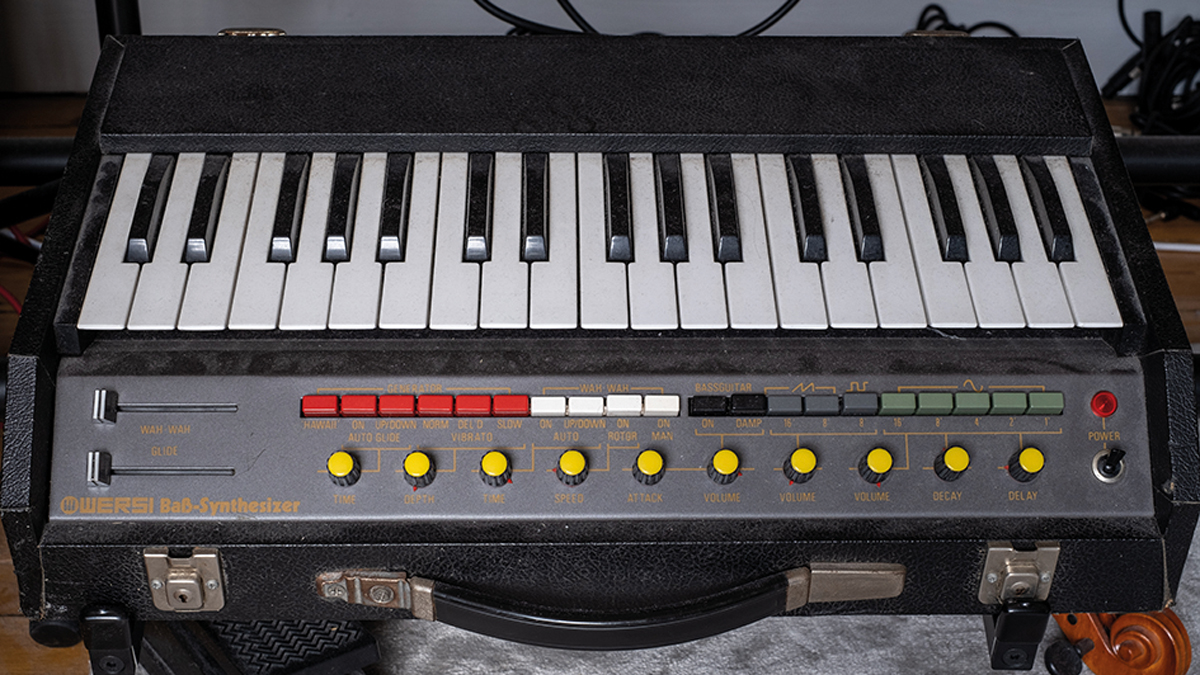
Was that the experiment then, to mix classical and modern digital techniques to create something inspiring?
“Yeah, it’s like, how do you explore that tension between the dogma of electronic music, where you bump up against a lot of tradition and the formality of classical music that often puts people off? It’s a crude way of putting it, but if an electronic purist starts slagging off classical music I feel really compelled to defend it and if someone who loves classical starts slagging off techno I feel compelled to defend techno. It’s a bit of a curse when decisions like how much reverb to put on a cello feel like a life and death decision.”
How do you navigate that?
“I’ve found that quite a good trick is that if you feel like you’ve put too much reverb on something just add more, or if something’s too repetitive, repeat it more. When you do that you’ll find that when you repeat a motif intentionally you‘ll do it slightly differently every time so you can build variation into these stubborn processes.”
Can you give a more exact example of that?
“The track Emissary has four reverbs - a tape echo, tape delay, plugin convolution and a massive plate reverb. There’s a bit of repetition in it but they all interact and swirl around the cello as the track develops because you’ve created a space where the cello almost moves through different chambers of space and sound.
“That feels like a really modern way to work because the way you can craft a headphone mix these days is really quite exquisite. I get completely lost when I’m constantly shifting the scale of a composition between intimate, grand, lo-fi and moments of real hi-fidelity. I think it’s amazing that you can do that - we do live in a pretty golden age of tech at the moment.”
But you also seem increasingly drawn to playing ‘real’ instruments at the moment…
“I’ve definitely discovered playing instruments more but I’ve really become more interested in creating effects chains. I’ve got two laptops and use one of them as an effects processor as I like this idea of capturing something with a mic setup that has loads of effects on it and not being able to go back on it. That feels really live because you only get one chance to get the effects chain right.
“I guess I’m constantly looking for something that makes making music feel exciting or like something’s at stake. I don’t like having loads of options to go back and treat things with - it kills something.”
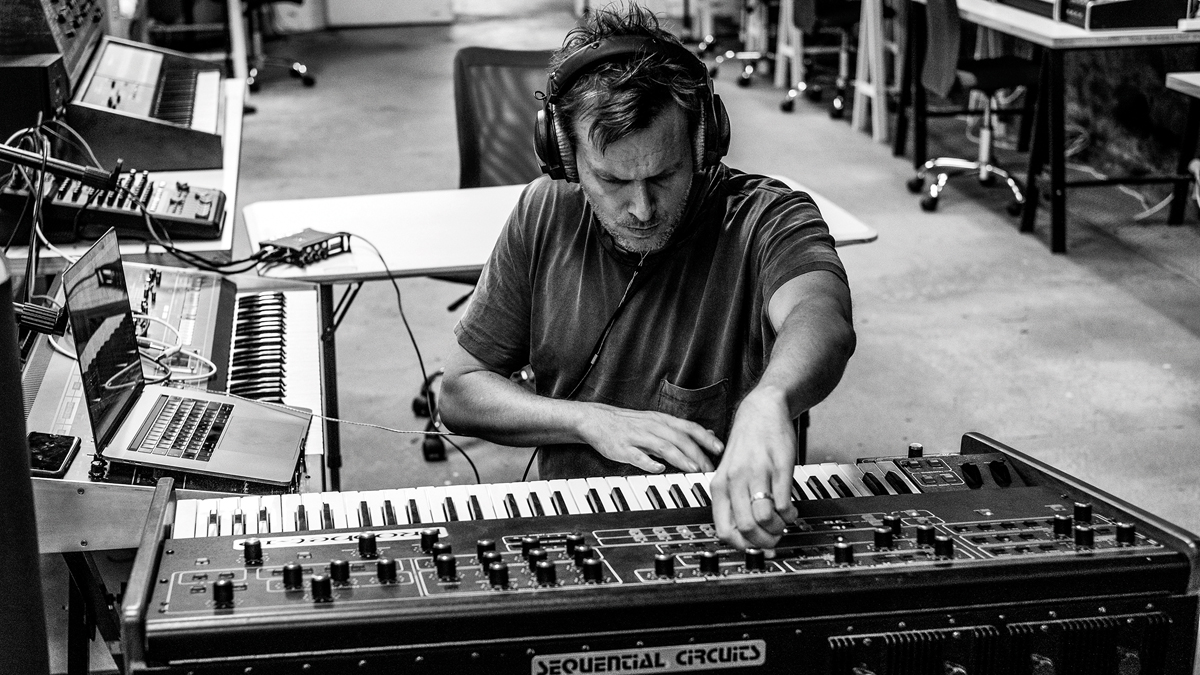
You mentioned earlier that you’ve taught yourself to write sheet music. How much of an asset has that been for creative composition?
“It’s definitely been helpful but there’s something slightly elitist about the idea that you need to be able to do that to write proper music that I completely reject. Look at jazz players: they just have amazing ears. They may not be able to sight read, but they can improvise and tell you exactly what the harmony is doing, whereas classical players are really good at sight reading but if you take their music away they don’t know how to improvise.
“I started learning sheet music daily a few years ago just to help me communicate with players and understand harmony more. I find it useful to do as much as I can myself - there’s nothing quite like writing a cello line, recording it and getting it right, but it just depends what you want from music. Playing instruments is mystified as this really difficult thing by people who can’t do it, but I’d argue that some things in electronic music are equally hard, like micing up a synth from an amp and getting the tone right. Everything’s hard if you set the bar high.”
Playing instruments is mystified as this really difficult thing by people who can’t do it, but I’d argue that some things in electronic music are equally hard.
You recorded 12-year-old choirboy Nathaniel Timoney via Zoom. Did you send him a mic?
“I sent him a little package and directed it over Zoom but we didn’t actually record it over Zoom. I told him not to sound like he’s in musical theatre but be slightly impassive and unemotional and nail the lyrical content so that it sounds relaxed. If the words are quite powerful then I find that slight contradiction is really effective.
“I also used bits of our conversations from a phone speaker because it kept breaking up. They’re all over the album as textures and I like the idea of capturing sound in as many ways as possible, even if it’s a bit broken and has signal distortion.”
Disguised Foundation has a lot of vocal manipulation on it - your vocals?
“They were recorded via laptop mic, timestretched about four times and reversed - for some reason the frequency response works well on my voice. Quite often I try to do vocals again with a posh mic but it rarely sounds as good.
“I do enjoy degrading sound but it needs to have a contrast. You think you understand contrast but you can always extract more subtlety from it. If you have a flat, dry, silky synth drone that’s quite toppy underneath a landscape of broken down lumpy distortion, it just puts it in a space that has contrast. For me that works wonders. Bands like The Flaming Lips and Tame Impala are good at that - this broken up world that’s got all these artefacts balancing it out.”
The track Shut You Down is a great example of that. The synths are almost uncontrollably angry but balanced by a calm underbelly…
“Exactly, it’s a good example. The distorted synth part is actually a cello and you’re not going to believe me but the pad sound when it drops is actually from the Eurostar train. The join that links the carriages makes this god-awful screech, so I recorded it on my phone and it sounds mental. You’re right, it’s a really pissed off track, but whenever I listen it puts me in a really good mood.”
The synths on Earth Systems are very Blade Runner 2049.
“It’s a Sequential OB-6 at the start, layered up and recorded onto tape, but the drone is all granular. I hate using granulators because I don’t fully understand how they work, so I do granular synthesis on an old E-MU sampler by literally looping one sample to make a tone, treating it with effects and making pad sounds out of it.
“The drone on Earth Systems is particularly toppy. When they mastered it they took it down, but I ended up using my master because the top end is brutal and I wanted it to really cut through in a toxic fashion.”
What else did you use for sounds?
“It was mainly about getting the recording of the strings right and recording things through another laptop and using it as an effects machine. A lot of it’s in the box.
“My friend Robin Fox runs a modular synth studio called MESS in Melbourne where you can rent stuff out for $40 for four hours. I used a Prophet-10 there and a micro-tuning Korg PS-3200, which is ace. I used that on the track Shut You Down and it doesn’t have MIDI so it’s all played in live.
“A lot of the synths were re-amped through a Roland KC-400 and I used a few old pedals like the Bad Stone Phase Shifter and a really crappy TC Electronics zoom reverb that only cost about £50. I actually used that on my first album Clarence Park, but it still sounds amazing. Tracks like Citrus were improvised, composed, tightened up a bit and recorded in an hour - then I’ll spend about three years finishing the mastering.”
You use quite a bit of piano on the record, but it’s recorded in a non-traditional format?
“The track Lambent Rag is all Disklavier, which is like a self-playing piano that you can send MIDI to. I spent so long trying to get the tone right by blending ribbon and condenser mics to get a perfect piano recording. Sometimes I just used the sound of the hammers and the felt with a high-pass filter, so you can barely hear it, but it’s definitely there chomping away in the background.”
A lot of the album was recorded in the box…?
“I love Simpler in Ableton because you can double-click a big folder of WAVs and instantly map them across your whole keyboard. For me, Ableton’s ease of use is amazing, the filters in Simpler are really good and the FM stuff in Sampler is really good fun to use, too. That whole streamlined process is so amazing - it’s instantly like Ferris Bueller’s Day Off.”
Generally, you’re not a fan of crazy plugins?
“I seem to make my strangest noises from re-pitching and reversing sounds and customising lots of synth jams that I’ve made. I know GRM Tools can do all sorts of crazy things to your sounds, but I’m not a fan of it because it seems too complex and I don’t fully get what it’s doing. When you hear that in someone’s music, it’s like, oh they’re just using a GRM plugin to make it sound crazy.”
It sounds like you tend to avoid using anything that has an element of randomness?
“The music’s definitely ideas-led rather than gear-led. You can get led up the garden path using loads of new tools that give you novelty sounds, but whose sounds are they? If they’re not my sounds I don’t feel I’ve got authorship over them. I’d rather get really good at playing piano or cello than get really good at programming and I can already do far too much in the computer. When you can literally produce any sound you want it becomes almost oppressive because it takes the challenge out of it. That’s why recording to tape is amazing, because you only get one take and don’t get the chance to edit or perfect it.”
Chris Clark’s new album Playground in a Lake is out now on 26 March on Deutsche Grammophon. For more information, visit his Facebook page.
Chris Clark’s essential studio gear
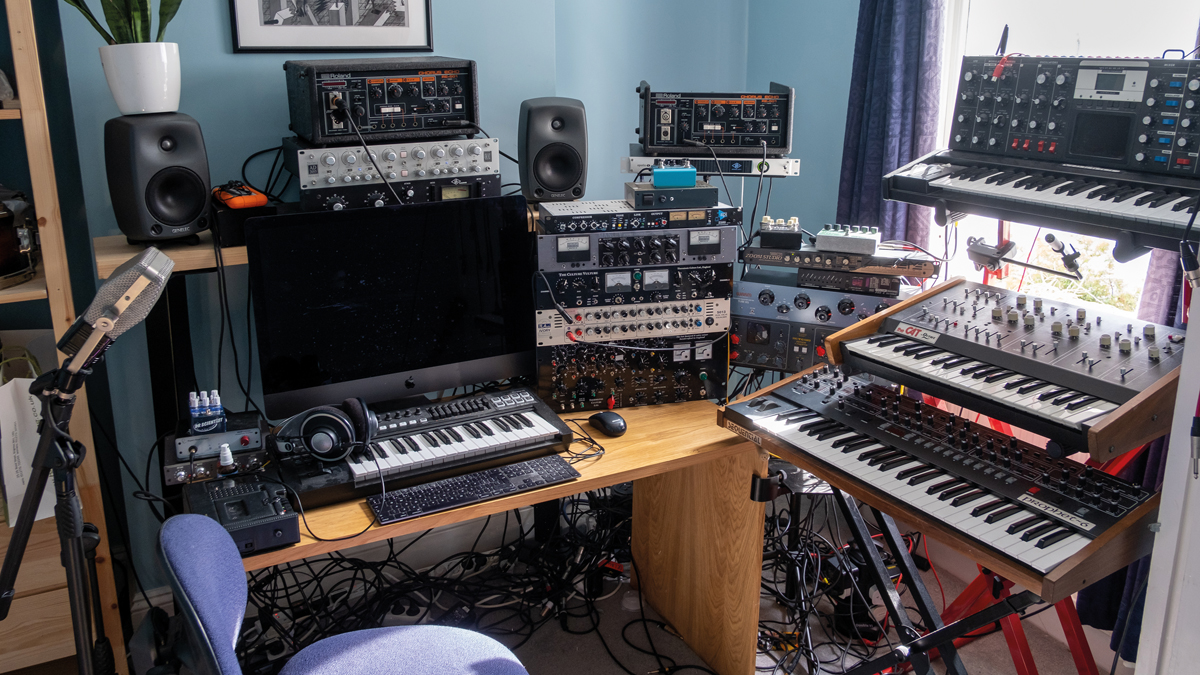
Avalon AD2055 EQ
“I don’t think I’ve ever used the bass on it. I sometimes filter stuff with a high notch going directly in with a mic input, like a posh wah-wah pedal for people who should really know better.”
TLA Ivory 5013 EQ
“Sounds amazing on the Cat. I think I made Winter Linn with that combo.”
Sennheiser MKH 8070 long shotgun mic
“I like pointing this out the window and recording people. I have Ableton automating through different intervals and formants so they sound high on acid, then layer up the recordings and use them on my albums - barely audible but captured nevertheless.”
Roland RE-501 Chorus Echo
Moog Moogerfooger MF-108M
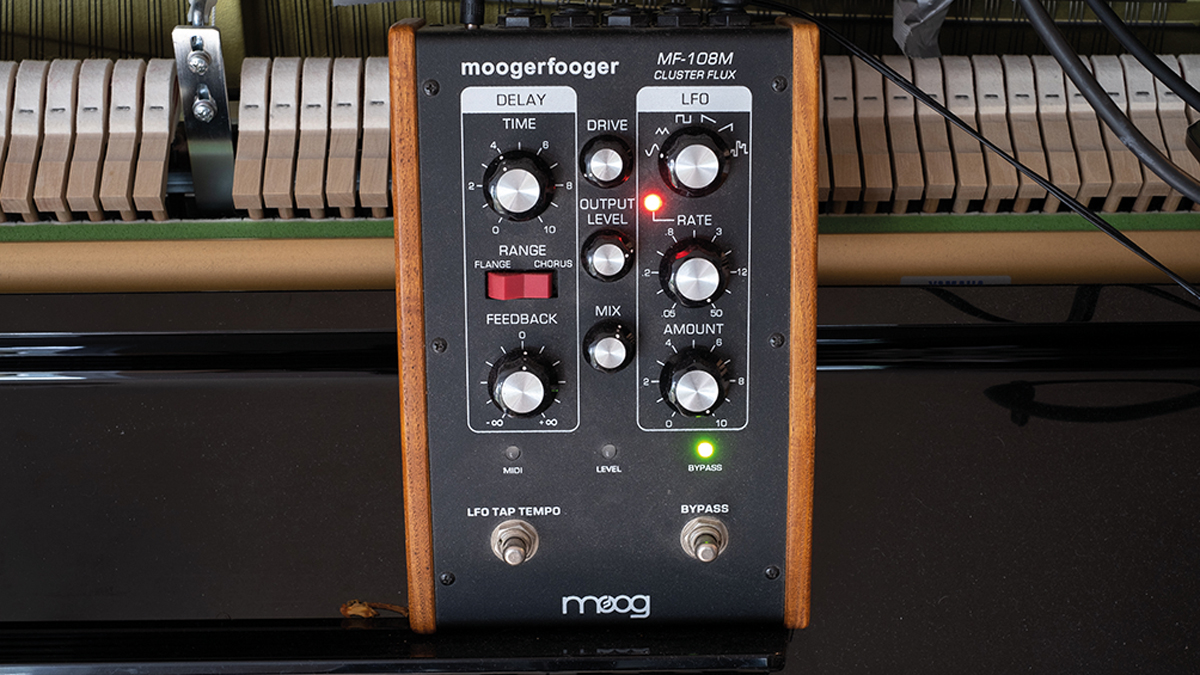
Cluster Flux
Zoom Studio 1201 Reverb and Effects
“I’ve had this since Clarence Park. I basically made that album with this box and an E-MU sampler and a Yamaha CS1x. The long reverbs are pure heavenly grot.”
Thermionic Culture Fat Bustard II
“Makes everything sound better. The EQ is surprisingly deep; you can totally change a track with it. It’s a bit like the Decapitator plugin.”
Chandler Zener Limiter
Yamaha Disklavier
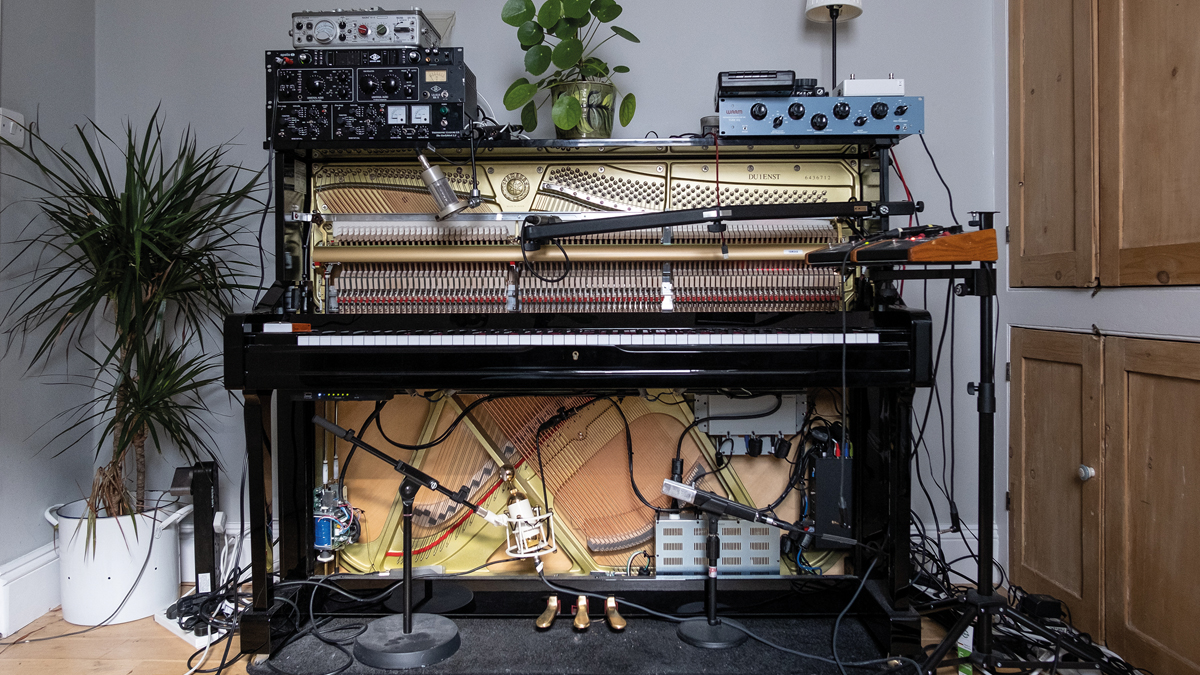
Sennheiser MKH 8020 Omni Mic

